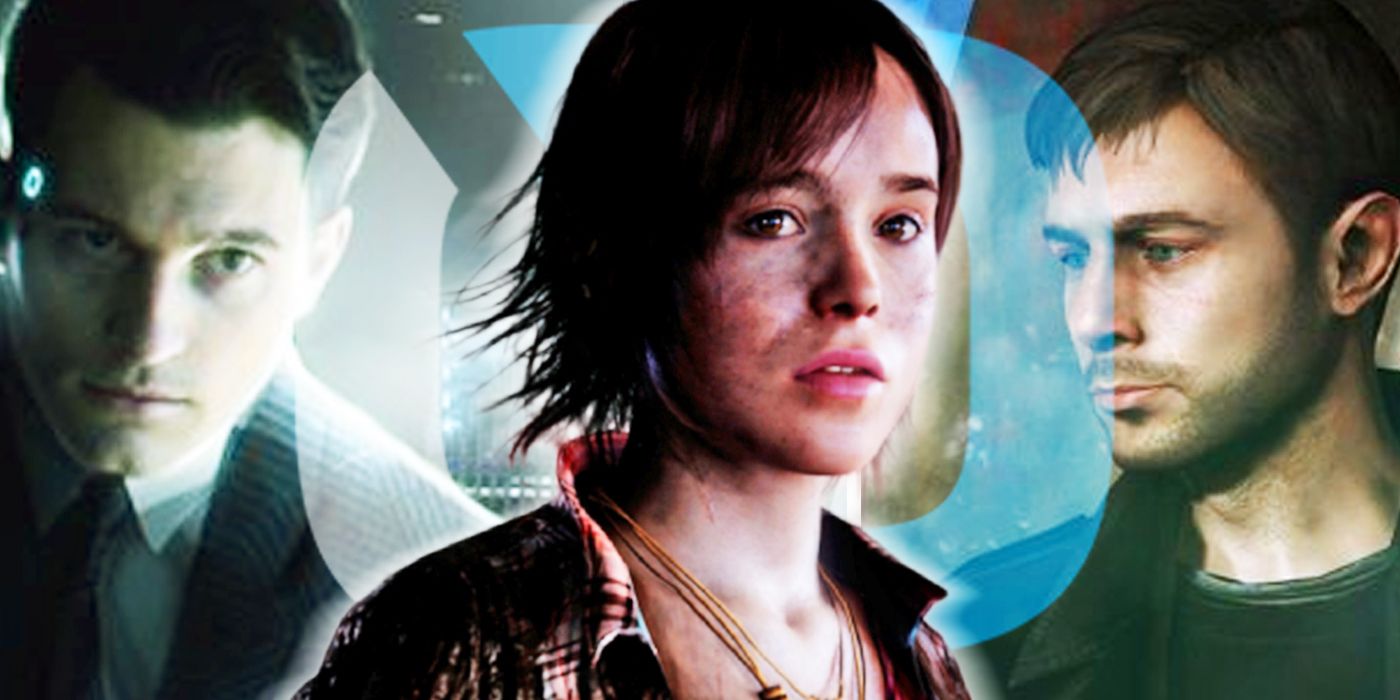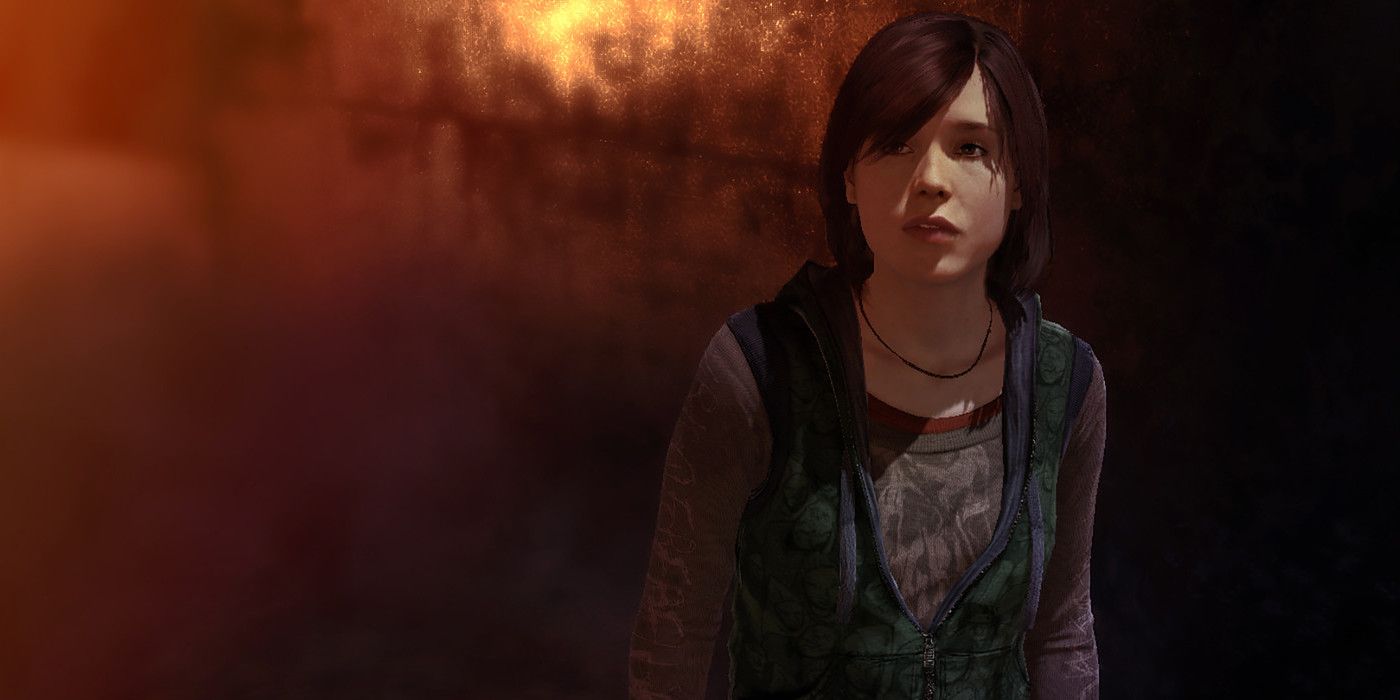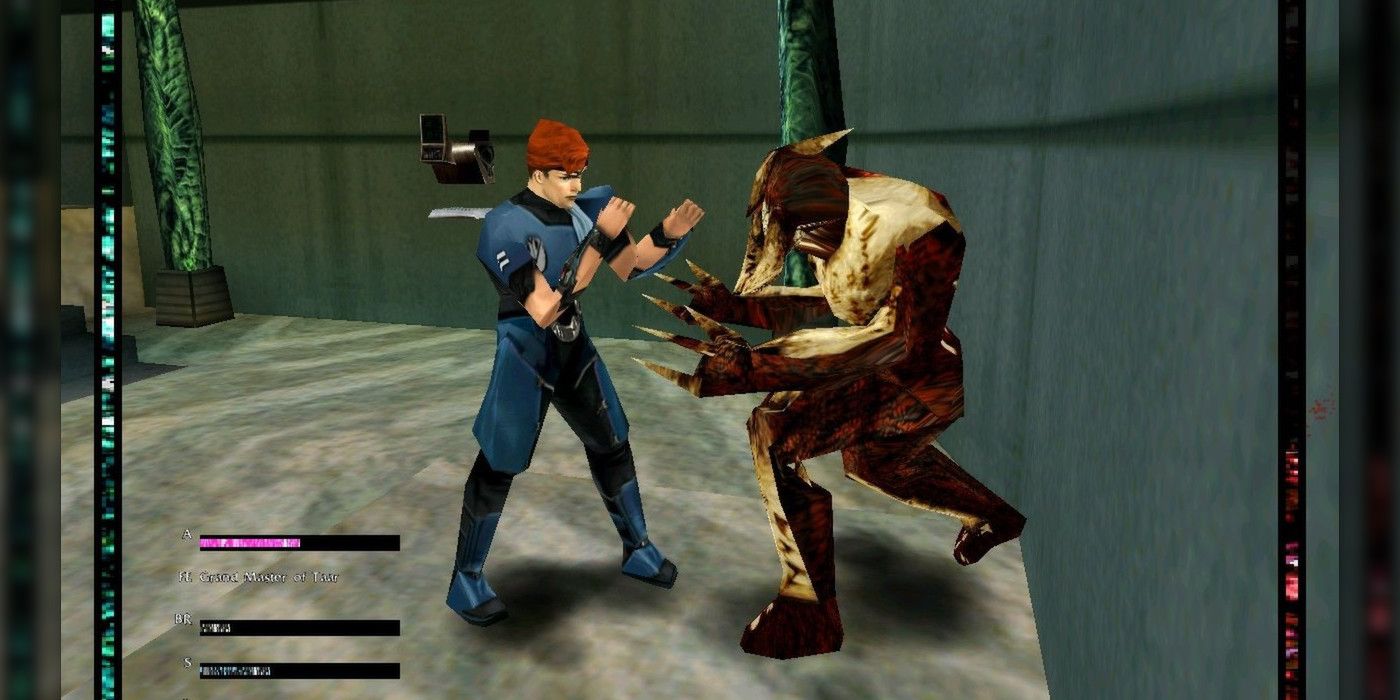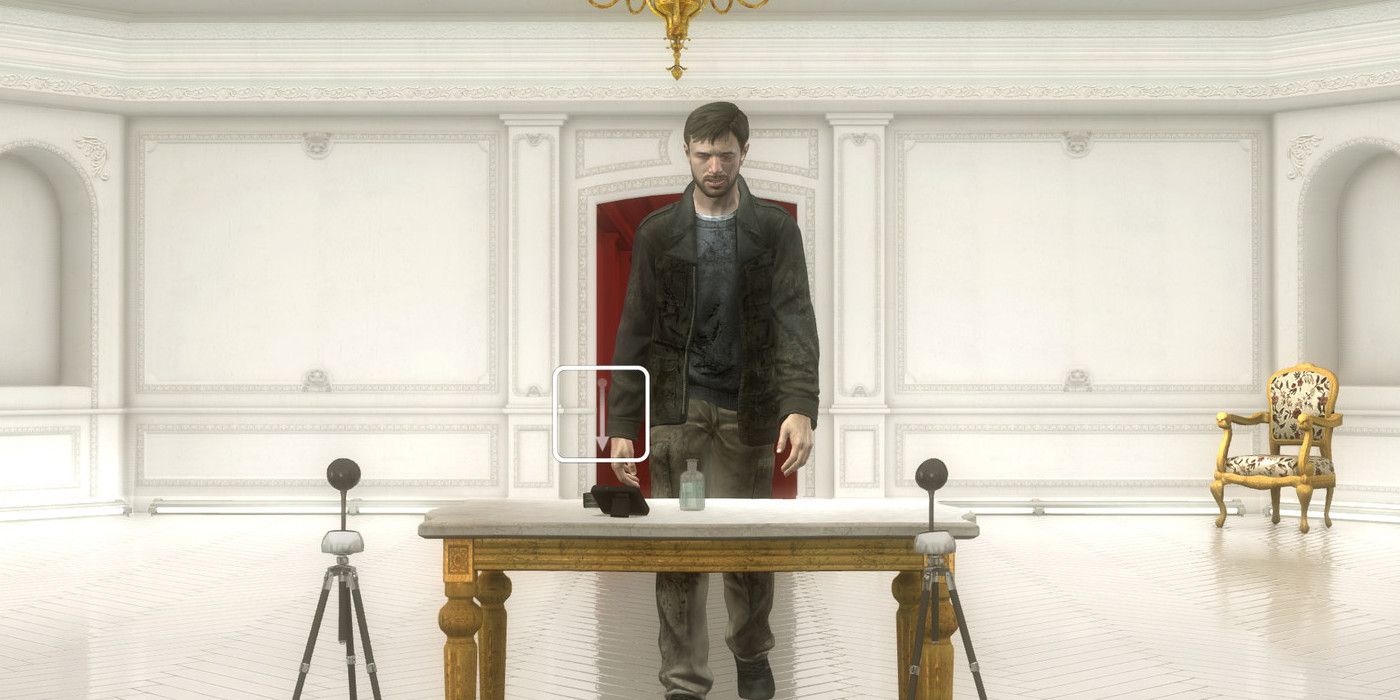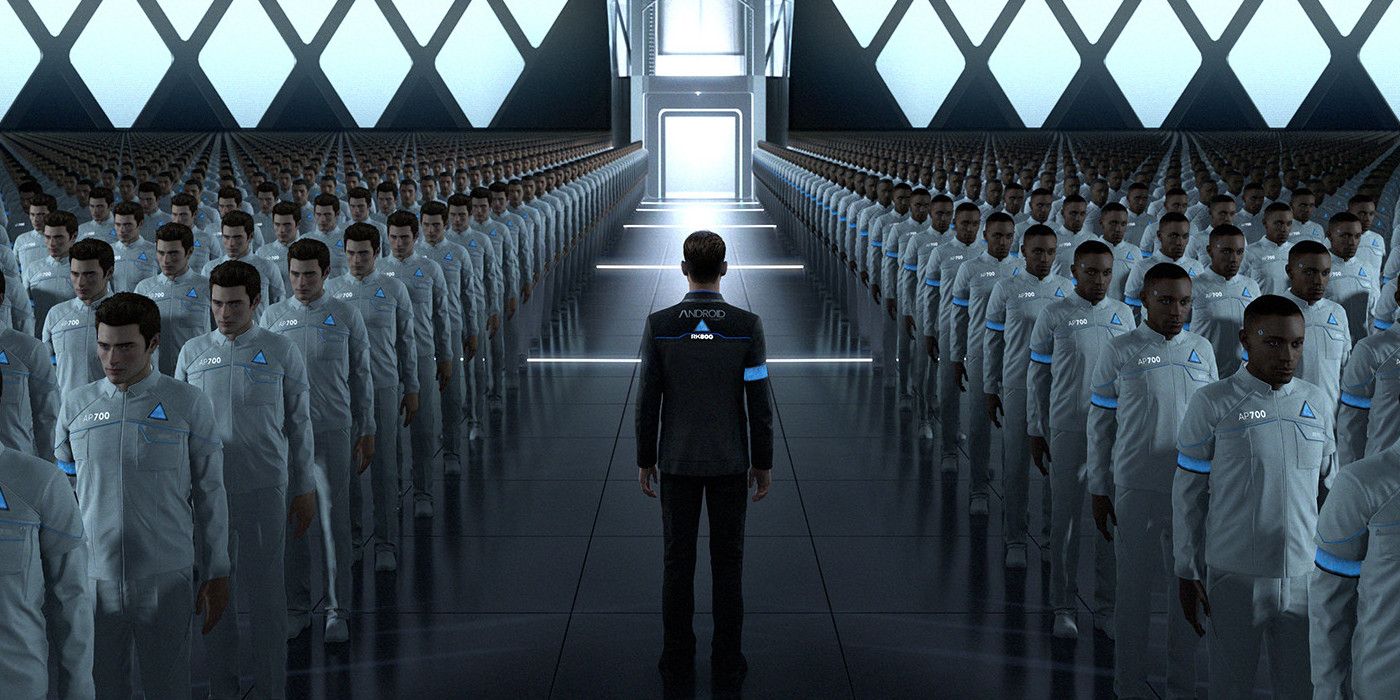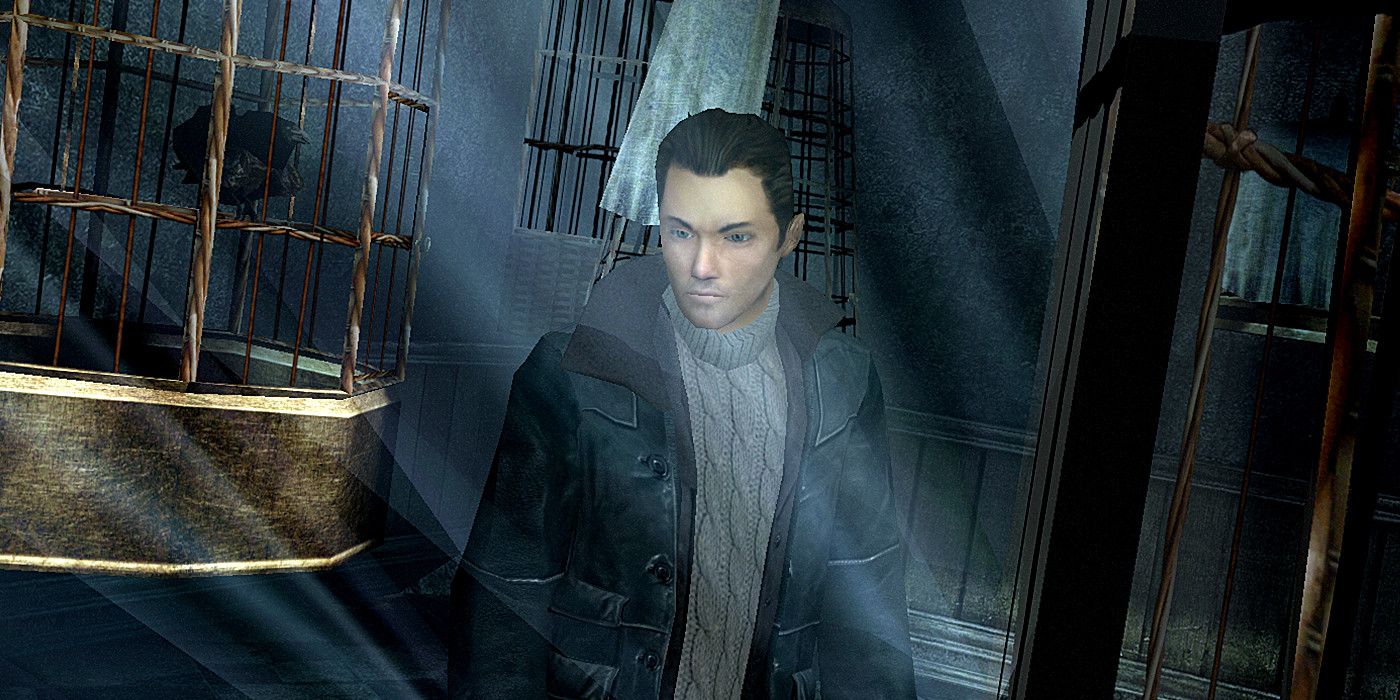While many of Quantic Dream's games pushed forward the idea of interactive storytelling in video games, it's hard to look at the current state of the studio with any enthusiasm. Currently, the studio's founders are under investigation for potentially fostering a harmful work environment. Many employees have left the studio, with some even suing Quantic Dream, which started the whispers of how many developers were being treated by the company's higher-ups.
Given the situation, it may be difficult to look at Quantic's library of games without connecting them to the current scandal. However, many of their games are remembered by critics on Metacritic and the Internet Games Database for being key in defining video games as art, though all five of Quantic Dream's published games have fairly average scores.
Beyond: Two Souls (71)
With an average score of 71 across multiple reviews, it's certainly something to say that Beyond: Two Souls is one of Quantic Dream's more decisive titles. Elliot Page's performance got a ton of praise from critics, with many citing his work as the gold standard for motion capture in video games. However, plenty of critics felt that the emphasis on player choice was far less prevalent than advertised.
Critics also began to note serious issues with Quantic Dream's style of game development, such as the overuse of quick-time events. Reviews were generally split between enjoying Beyond: Two Souls as an interactive story and criticizing the game for not having enough actual gameplay. The controversy behind a fully nude version of Elliot Page's character being created, despite his contract forbidding that, also factored into many negative reviews of Beyond: Two Souls' re-releases.
Omikron: The Nomad Soul (74.5)
The first game made by Quantic Dream doesn't actually have any critic reviews listed on Metacritic, but user reviews are slightly more kind to Omikron: The Nomad Soul than Beyond: Two Souls. Eurocritic is the source of the single review for the game listed on the Internet Games Database. It gives the game a solid 70 out of 100, which serves as a fairly accurate average review compared to others.
Given that Omikron: The Nomad Soul was Quantic Dream's first outing, the studio's signature style was seen as fairly innovative. Critics praised the game's atmosphere and the emphasis on storytelling, the latter being a relatively new concept in 1999. Omikron isn't seen as a perfect game, with plenty of criticism directed towards the game's sluggish controls and, once again, a lack of real gameplay compared to other titles of the time.
Heavy Rain (77.5)
The idea of game vs. story would continue to follow Quantic Dream through most of their development cycle. With Heavy Rain, critics fell in love with the dramatic story presented through multiple different playable characters. Despite this, many were also quick to point out some significant plot holes and some in David Cage's 2,000-page script for the game.
There's plenty of similar criticism with Heavy Rain and other Quantic Dream games. Mainly, critics found the game's controls and grey-ish color-pallet to be huge problems that continued from previous Quantic games. That being said, reviews are certainly more favorable towards the story told by Heavy Rain. Even as Heavy Rain continues to see several re-releases, critics still are quick to point out that the game's just as enjoyable as it was when it first released.
Detroit: Become Human (79)
Detroit: Become Human manages to combine some of the stronger elements from previous Quantic Dream games into a generally positive package. Surprisingly enough, the story of Detroit: Become Human saw the heaviest criticism, despite narratives usually being Quantic Dream's strong suit. Many critics pointed out how the story's depiction of race relations felt shallow and misrepresented.
The biggest draw of Detroit: Become Human was its technical achievements, according to critics. While the multiple protagonists were criticized for feeling bland and uninteresting, critics also loved how there were so many different choices that would lead these characters down different paths. While Detroit: Become Human may suffer narratively, it's supported by its technical prowess in the eyes of critics.
Fahrenheit/Indigo Prophecy (84)
Indigo Prophecy is, without a doubt, Quantic Dream's best game in the eyes of both fans and critics. A lot of what would eventually be seen as tropey or outdated was new and refreshing in Indigo Prophecy, such as the use of quick-time events. Some reviews weren't too fond of these elements, even comparing the game to Dance Dance Revolution. The narrative is once again where most of the critic's praise comes in, earning Indigo Prophecy tons of perfect scores.
Despite the praise, Indigo Prophecy still only manages to average an 84 overall. This appears to be due to critics finding the later half to be a weaker experience than the start of the game. There's also a notable amount of optimistic criticism towards the game's polish, with many reviews stating that Indigo Prophecy was a step in the right direction for gaming as a whole, but still a title that wasn't quite where it needed to be.

